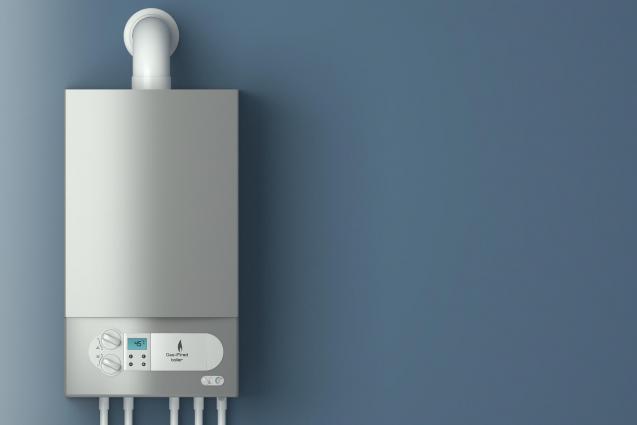
Key Differences Between Gas and Electric Heating Systems
By Fluid Plumbing|March 27, 2024
Within contemporary homes and commercial properties, heating systems play a crucial role in establishing and regulating the indoor atmosphere. As those chilling winter days and frosty nights crawl in, a well-functioning and cost-efficient heating system is a necessity, not a luxury. However, many are left scratching their heads when having to choose between gas or electric heating systems, both of which have their unique sets of advantages and drawbacks. This article aims to dissect the mechanics of both types of heating systems and provide a comprehensive analysis of their key differences, ultimately aiding you in navigating the world of heating system comparisons.
Understanding Heating Systems
So, what exactly is a heating system? At its most fundamental level, a heating system is a mechanism designed to increase the temperature within a contained space. The aim is to maintain a comfortable and habitable environment. Among a plethora of heating systems available on the market, gas and electric heating systems are arguably the most popular and commonly employed, particularly within urban domestic dwellings and business settings.
Imbibing a clear understanding of the inner workings and features of both these heating systems can play an instrumental role in deciding which one is better suited to accommodate specific needs and preferences.
The Basics of Gas Heating Systems
Considered a classic in the world of heating systems, gas heating operates through the combustion of natural gas, thereby creating a heat source. One of the most lauded advantages of gas heating is its cost-efficiency stemming from the economic aspect of natural gas, which, more often than not, is more affordable than electricity.
Furthermore, it showcases a commendable environmental footprint when compared to traditional coal-generated electricity. The lessened greenhouse gas output as a result of burning natural gas plays an integral role in mitigating the detrimental impact on the environment, making it a relatively eco-friendly alternative.
Nonetheless, gas heating systems are not devoid of potential drawbacks. Firstly, these systems are reliant on a direct and sustainable gas line connection, which can limit their viability in certain properties. Moreover, there are possible safety risks associated with the prospect of gas leaks, which, although rare with modern systems and safety measures, still necessitate consideration.
Typically, gas heating systems are found in colder climates requiring a substantial amount of heating. The consistent need for a high heat output often justifies the associated costs and logistical complications related to gas heating systems in these regions.
Essential Elements of Electric Heating Systems
In contrast, electric heating systems operate in a different manner. They utilise an electric current, passed through a resistive element, to facilitate the process of converting electric energy into heat energy. One of its conspicuous advantages is its inherently higher safety profile, primarily due to the absence of risks associated with gas leakage.
The installation process of electric heating systems is another compelling advantage. It often proves to be smoother and less strenuous when compared to gas systems, primarily due to the absence of a need for a gas line connection. This can be particularly handy in properties where incorporating a new gas line can result in significant structural alterations or complications.
However, like any system, electric heating systems have their drawbacks. Although installation may be easier, the running costs of electric heating systems may weigh heavier due to the comparatively higher price of electricity. Furthermore, the environmental impact of these systems, particularly when the source of electricity is non-renewable, could be more detrimental than that of gas heating systems.
The advantageousness of electric heating systems often surfaces in areas where the requirement for heating is either low to medium or sporadic. This includes milder climates or spaces that do not require round-the-clock heating.
Comparative Analysis: Gas Vs. Electric Heating Systems
When focus is shifted to efficiency, gas systems often come up trumps due to the intrinsic energy efficiency of natural gas. In contrast, electric heating systems, while being efficient in conversion, can be subject to energy loss during the generation and transmission process of electricity itself.
However, when it comes to running costs and maintenance, a more detailed analysis is required. Gas may indeed be cheaper than electricity in terms of unit prices. Still, the need for regular safety checks and maintenance of a gas system may result in cumulatively higher costs over time.
From an environmental perspective, there are copious elements to consider for both systems. While it is commonly perceived that gas systems are more eco-friendly than their coal-powered electricity counterparts, the burgeoning of green and renewable electricity has somewhat balanced the environmental merits of both gas and electric systems.
Lastly, safety considerations should never be overlooked. While gas systems can be associated with the potential hazard of gas leaks, electric systems might pose safety risks related to electrical faults or fire, albeit rare.
Making the Choice: Gas or Electric Heating Systems?
The determination between gas or electric heating is not a one-size-fits-all scenario and is largely contingent upon individual circumstances and requirements. Geographic location, the existing infrastructure of a property, budget constraints, and environmental sensitivities can all influence the final decision.
Broadly speaking, a gas system may prove more advantageous for larger dwellings in colder climates, thanks to its capacity for robust heating. In contrast, an electric system could be a viable option for smaller households in a warmer climate or for heating spaces intermittently, due to affordability and ease of installation.
Future trends should not be discounted from this decision-making process. The escalating use of renewable energy sources and advancements in heating technologies could exert a significant impact on the future of heating systems and their environmental implications.
For more personalised and specific advice based on your situation, consulting professionals or utilising reputable online resources for heating system comparisons could prove beneficial.
Conclusion
A granular analysis of the intricacies and differences between gas and electric heating systems can yield key insights to make a more informed decision. A firm grasp of their distinguishing features, pitfalls, and benefits, juxtaposed with factors like location-specific requirements, occupancy and usage patterns, and environmental values can lead to a prudent selection. With diligent research and professional consultancy where required, you can choose the right heating system that seamlessly melds with your requirements.
Understanding Heating Systems
So, what exactly is a heating system? At its most fundamental level, a heating system is a mechanism designed to increase the temperature within a contained space. The aim is to maintain a comfortable and habitable environment. Among a plethora of heating systems available on the market, gas and electric heating systems are arguably the most popular and commonly employed, particularly within urban domestic dwellings and business settings.
Imbibing a clear understanding of the inner workings and features of both these heating systems can play an instrumental role in deciding which one is better suited to accommodate specific needs and preferences.
The Basics of Gas Heating Systems
Considered a classic in the world of heating systems, gas heating operates through the combustion of natural gas, thereby creating a heat source. One of the most lauded advantages of gas heating is its cost-efficiency stemming from the economic aspect of natural gas, which, more often than not, is more affordable than electricity.
Furthermore, it showcases a commendable environmental footprint when compared to traditional coal-generated electricity. The lessened greenhouse gas output as a result of burning natural gas plays an integral role in mitigating the detrimental impact on the environment, making it a relatively eco-friendly alternative.
Nonetheless, gas heating systems are not devoid of potential drawbacks. Firstly, these systems are reliant on a direct and sustainable gas line connection, which can limit their viability in certain properties. Moreover, there are possible safety risks associated with the prospect of gas leaks, which, although rare with modern systems and safety measures, still necessitate consideration.
Typically, gas heating systems are found in colder climates requiring a substantial amount of heating. The consistent need for a high heat output often justifies the associated costs and logistical complications related to gas heating systems in these regions.
Essential Elements of Electric Heating Systems
In contrast, electric heating systems operate in a different manner. They utilise an electric current, passed through a resistive element, to facilitate the process of converting electric energy into heat energy. One of its conspicuous advantages is its inherently higher safety profile, primarily due to the absence of risks associated with gas leakage.
The installation process of electric heating systems is another compelling advantage. It often proves to be smoother and less strenuous when compared to gas systems, primarily due to the absence of a need for a gas line connection. This can be particularly handy in properties where incorporating a new gas line can result in significant structural alterations or complications.
However, like any system, electric heating systems have their drawbacks. Although installation may be easier, the running costs of electric heating systems may weigh heavier due to the comparatively higher price of electricity. Furthermore, the environmental impact of these systems, particularly when the source of electricity is non-renewable, could be more detrimental than that of gas heating systems.
The advantageousness of electric heating systems often surfaces in areas where the requirement for heating is either low to medium or sporadic. This includes milder climates or spaces that do not require round-the-clock heating.
Comparative Analysis: Gas Vs. Electric Heating Systems
When focus is shifted to efficiency, gas systems often come up trumps due to the intrinsic energy efficiency of natural gas. In contrast, electric heating systems, while being efficient in conversion, can be subject to energy loss during the generation and transmission process of electricity itself.
However, when it comes to running costs and maintenance, a more detailed analysis is required. Gas may indeed be cheaper than electricity in terms of unit prices. Still, the need for regular safety checks and maintenance of a gas system may result in cumulatively higher costs over time.
From an environmental perspective, there are copious elements to consider for both systems. While it is commonly perceived that gas systems are more eco-friendly than their coal-powered electricity counterparts, the burgeoning of green and renewable electricity has somewhat balanced the environmental merits of both gas and electric systems.
Lastly, safety considerations should never be overlooked. While gas systems can be associated with the potential hazard of gas leaks, electric systems might pose safety risks related to electrical faults or fire, albeit rare.
Making the Choice: Gas or Electric Heating Systems?
The determination between gas or electric heating is not a one-size-fits-all scenario and is largely contingent upon individual circumstances and requirements. Geographic location, the existing infrastructure of a property, budget constraints, and environmental sensitivities can all influence the final decision.
Broadly speaking, a gas system may prove more advantageous for larger dwellings in colder climates, thanks to its capacity for robust heating. In contrast, an electric system could be a viable option for smaller households in a warmer climate or for heating spaces intermittently, due to affordability and ease of installation.
Future trends should not be discounted from this decision-making process. The escalating use of renewable energy sources and advancements in heating technologies could exert a significant impact on the future of heating systems and their environmental implications.
For more personalised and specific advice based on your situation, consulting professionals or utilising reputable online resources for heating system comparisons could prove beneficial.
Conclusion
A granular analysis of the intricacies and differences between gas and electric heating systems can yield key insights to make a more informed decision. A firm grasp of their distinguishing features, pitfalls, and benefits, juxtaposed with factors like location-specific requirements, occupancy and usage patterns, and environmental values can lead to a prudent selection. With diligent research and professional consultancy where required, you can choose the right heating system that seamlessly melds with your requirements.



